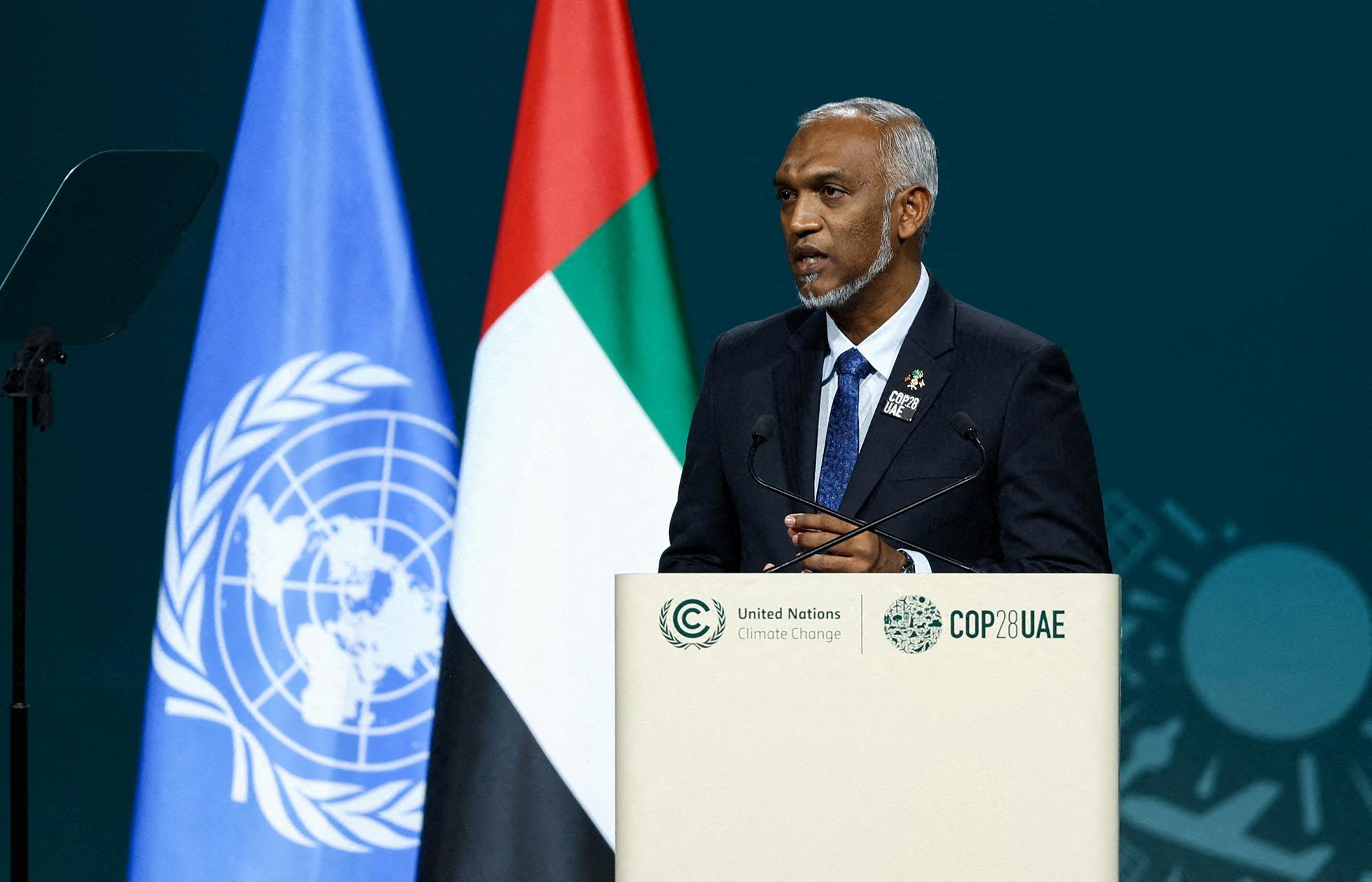 President of the Maldives Mohamed Muizzu delivers a national statement at the World Climate Action Summit during the United Nations Climate Change Conference (COP28) in Dubai, United Arab Emirates, December 1, 2023. (PHOTO / REUTERS)
President of the Maldives Mohamed Muizzu delivers a national statement at the World Climate Action Summit during the United Nations Climate Change Conference (COP28) in Dubai, United Arab Emirates, December 1, 2023. (PHOTO / REUTERS)
President of the Republic of Maldives Mohamed Muizzu is paying a state visit to China from Monday to Friday. He is the first head of state to visit China in 2024.
What makes this visit notable is the fact that he is the first president of the archipelagic country in the Indian Ocean to make China a destination of his official visits after his election before India, as his seven predecessors had done after being elected head of state.
This may become something some other countries with ulterior motives try to make an issue of to estrange China from India.
However, if there is any political message this visit may send, it is that the government of this Indian Ocean country does not want to get involved in any geopolitical game, and it does not want to take sides in any geopolitical rivalry.
President Muizzu has emphasized his intention to work closely with all countries, including India. The Maldives is too small, he says, to take sides in a "geopolitical rivalry between bigger nations".
It is natural that the Chinese leader should extend an invitation for the Maldivian president to visit, because the country is one of the major destinations for Chinese tourists. Under the framework of the Belt and Road Initiative, the China-Maldives Friendship Bridge, or Sinamale Bridge, the first cross-sea bridge in the Maldives was built, and the 2-kilometer-long bridge makes it possible for locals and tourists to travel between the two islands within five minutes. The initiative has also enabled the Maldives to build affordable housing projects and renovate the country's international airport.
The cooperation between China and the Maldives is an example of how the China-proposed Belt and Road Initiative has promoted ties between countries on the basis of equality and mutual benefit.
In developing relations with all countries, China has long upheld the Five Principles of Peaceful Coexistence: mutual respect for territorial integrity and sovereignty, mutual nonaggression, noninterference in each other's internal affairs, equality and mutual benefit and peaceful coexistence.
With these principles, China has never and will never attach any political conditions when developing relations with other countries. This conforms to what the building of a community with a shared future for mankind entails.
Multilateralism and globalization are what China pursues in developing its relations with other countries. China will never seek hegemony however strong its economy and however powerful its congregate strength become. To suggest that China is developing relations with the Maldives in order to estrange it from India is a malicious smear. But such bad-mouthing of China has become day-to-day occurrence, requiring little to feed the rumor mill.


